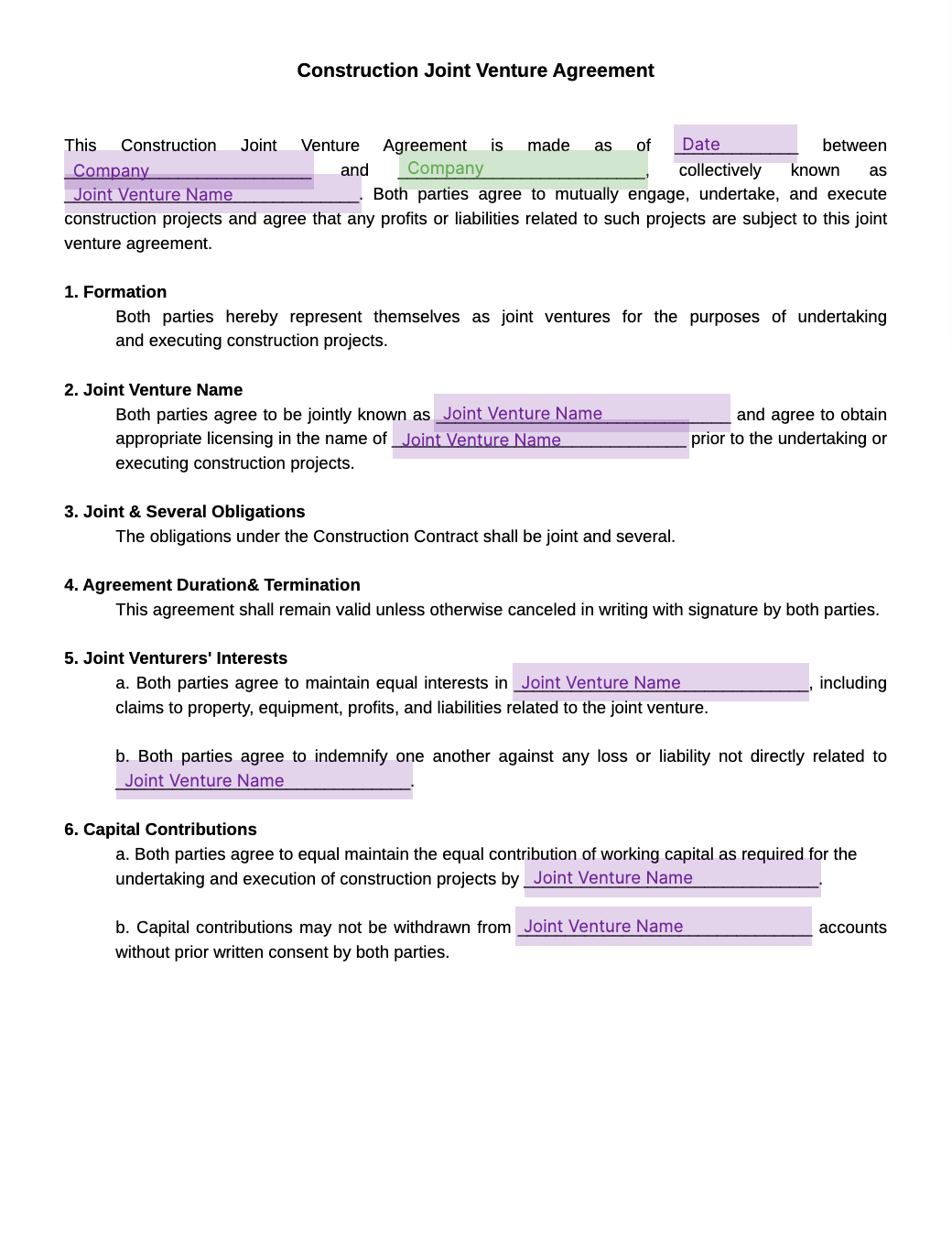Construction Joint Venture Agreement: Crafting Your Operations
Within the construction landscape, the essence of collaboration is paramount. The construction joint venture agreement stands as a cornerstone for such collaborative efforts. Check this guide out to learn more about what you might need before getting started. This overview aims to shed light on the nuances of these agreements, emphasizing their core value and the benefits they bring to the table.

What Is a Construction Joint Venture Agreement?
- Scope of work. This includes all facets, from project goals, milestones, and specific assignments to the deliverables.
- Financial contributions. This segment should elucidate the financial pledges of each participant and address how profits or losses will be apportioned.
- Agreement duration. The contract should elucidate its longevity. Is it tailored to the current project, or does it span a predefined duration?
- Conflict resolution. A robust resolution mechanism within the agreement can stave off extensive conflicts, ensuring they’re addressed in a structured and amicable manner.
- Intellectual property. Joint ventures can spawn or utilize intellectual assets like designs or proprietary techniques. The contract should demarcate ownership rights and stipulate how each party can utilize these assets.
The Significance of a Construction Joint Venture Agreement
Collaboration clarity
The essence of a joint venture contract lies in its ability to delineate the terms of partnership in a transparent manner. This ensures every participating entity is clear about its roles, monetary commitments, and other vital duties, fostering a seamless and effective alliance.
Risk distribution
The dynamic nature of the construction domain comes with its set of uncertainties, ranging from operational challenges to monetary hurdles. Such an agreement aids in distributing these risks evenly among participants, ensuring no single entity is overwhelmed by unexpected setbacks.


